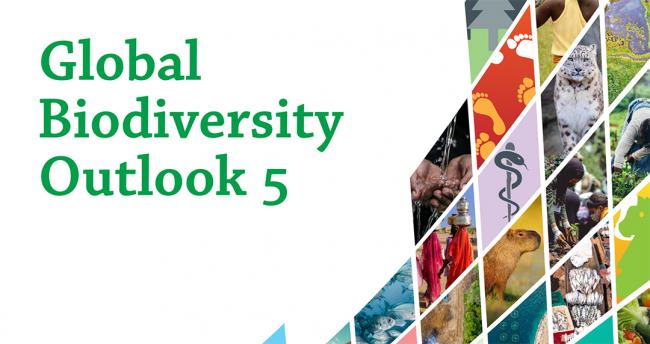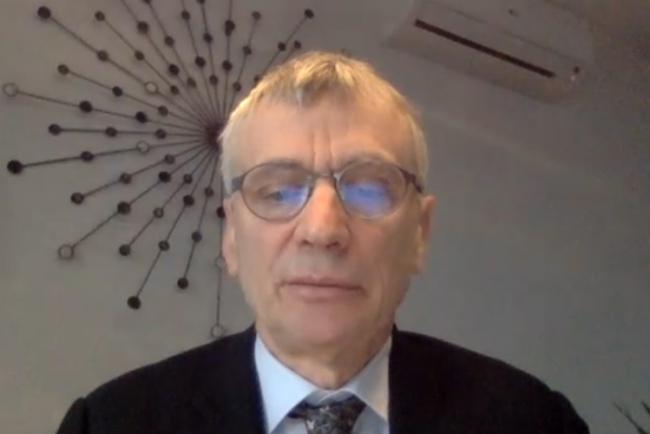The Convention on Biological Diversity (CBD) Special Virtual Sessions convened on Tuesday, 15 September from 7:00-9:00 am EDT (UTC-4:00). These virtual sessions of the CBD’s Subsidiary Body on Scientific, Technical and Technological Advice (SBSTTA) and Subsidiary Body on Implementation (SBI) provide the opportunity for the presentation of information and for statements by parties and observers.
Launch of the fifth edition of the Global Biodiversity Outlook
The launch of the fifth Global Biodiversity Outlook (GBO-5) headlined the opening of the special virtual sessions. SBSTTA Chair Hesiquio Benitez noted the sessions are taking place to help parties prepare for the next meetings of the subsidiary bodies, delayed until the first quarter of 2021.
CBD Executive Secretary Elizabeth Mrema stressed that the future of humanity depends on the capacity to act “with urgency and compassion.”
Hamdallah Zedan, on behalf of the presidency of the 14th meeting of the Conference of the Parties, said that the issues of climate, land, biodiversity, and water must be at the heart of countries’ recovery from the COVID-19 pandemic.
Presentation of GBO-5
David Cooper, CBD Deputy Executive Secretary, presented the report.
Cooper highlighted GBO-5’s conclusions that although some of the 2020 Aichi Biodiversity Targets have been partially achieved, none will be fully met. The report emphasizes poor alignment between international and national targets; slow progress in conservation efforts; and parties’ failure to address financial subsidies in sectors harmful to biodiversity. It notes some successes, including a falling rate of global deforestation and an increase in protected areas.
To bend the curve of biodiversity loss, Cooper continued, GBO-5 recommends eight transition areas for integrated and transformative change, including climate action, biodiversity-inclusive health, and sustainable production.
Cooper stressed that achieving the 2050 vision of “living in harmony with nature” remains attainable as long as parties take strong conservation and restoration actions.
Local Biodiversity Outlooks (LBO) and Global Partnership for Plant Conservation (GPPC)
Joji Carino, Forest Peoples Programme, presented the second edition of the Local Biodiversity Outlooks, which focuses on local biodiversity and stories of resilience among indigenous peoples and local communities (IPLCs). Carino explained the report finds that IPLCs are underrepresented in national strategies and action plans, despite agreement that putting culture and the rights of IPLCs at the heart of biodiversity strategy can bring about positive outcomes. It stresses that sustained partnerships between scientific and indigenous knowledge are necessary and proposes six transition areas aligned with GBO-5, including culture, food, and incentives and finance.
Suzanne Sharrock, Botanic Gardens Conservation International, reported on the GPPC. She stressed that, despite most targets not being met, more progress in plant conservation has been made than without the GPPC. She stressed the need for plant conservation to be included in the post-2020 global biodiversity framework.
Statements by Parties
Chile, the United Kingdom, Costa Rica, and Mexico welcomed GBO-5. South Africa pointed to the need to mainstream biodiversity into other sectors in order to implement targets. Sweden pressed for society to build resilience through biodiversity restoration and wise use of resources.
The Global Youth Biodiversity Network pressed for the inclusion of local, grassroots voices in future GBOs. The CBD Women’s Caucus emphasized that women are key knowledge holders in biodiversity and conservation. The CBD Alliance questioned the lack of attention to structural causes of biodiversity loss.
IISD, through its Earth Negotiations Bulletin (ENB) Meeting Coverage, is providing daily web coverage and a briefing note from the special virtual sessions.

